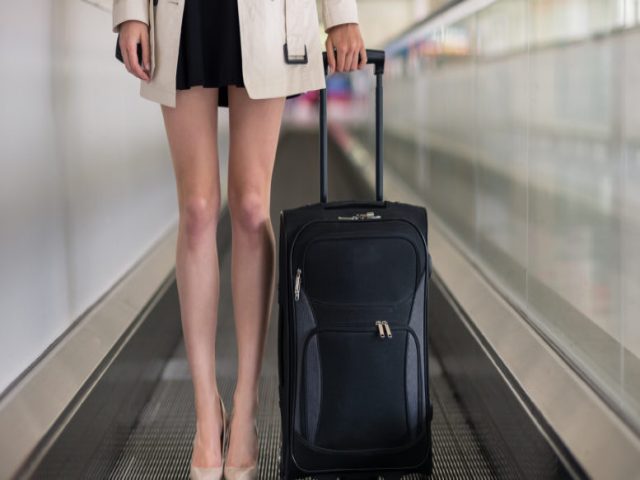Recent Blogs
- 5 Dangerous Foods for People with Varicose Veins
- Early Symptoms of Varicose Veins You Should Never Ignore
- Sclerotherapy An Effective Treatment for Varicose and Spider Veins
- 11 Common Risk Factors for Venous Insufficiency
- Stretch Marks or Varicose Veins: How to Differentiate?
- The Role of Family History in Vein Disease
- Free Legs Vein Screening
- Caring for Your Friends’ and Family’s Vein Health
- Understanding the Difference in Treatment of Varicose and Spider Veins
- How Varithena works?
Published on: 28-Jun-2019

Patients often asked us whether they can travel on a plane after their varicose vein treatment. At Comprehensive Vein Care, there is a very strict protocol in place for plane travel post treatment. This protocol will vary for Overseas Plane Travel (>4 hours on the plane) and Interstate Travel (<4 hours on the plane).
Overseas Travel (>4 hours)
If varicose veins are treated with either Endovenous Laser Ablation (EVLA) or Sclerotherapy (UGS), we recommend that patients do not fly for at least 3 weeks.
There are two major reasons for this:
There could be an increased risk of Deep Vein Thrombosis (a leg clot) when travelling on long haul overseas trips in patients who have had varicose veins treated. This risk is amplified with smoking, with the Oral Contraceptive Pill or HRT and of course, in patients with overall poor health. It should be noted that there is an inherent, baseline risk of thrombosis that exists for ALL people flying for over 4 hours, irregardless of whether they have had treatment or not.
Most patients are reviewed within 1-2 weeks following their varicose vein treatment. If there are any major concerns following their treatment, they are more likely to occur during this period and it is therefore much easier to address these concerns before they get on a plane. If a patient must travel overseas within the first 3 weeks, a careful preventative regime must be adhered to. This includes the wearing of travel socks, regular movement of the feet in the plane whilst sitting, regular walking in the plane, drinking plenty of water (keeps the body hydrated) and avoiding excessive alcohol consumption (which can dehydrate the body). For people who have a high risk of Deep Vein Thrombosis (leg clots), blood thinning injections may be prescribed.
If a patient must travel overseas within the first 3 weeks, a careful preventative regime must be adhered to. This includes the wearing of travel socks, regular movement of the feet in the plane whilst sitting, regular walking in the plane, drinking plenty of water (keeps the body hydrated) and avoiding excessive alcohol consumption (which can dehydrate the body). For people who have a high risk of Deep Vein Thrombosis (leg clots), blood thinning injections may be prescribed.
Interstate Travel (<4 hours)
Most patients travelling interstate within 1-2 weeks of their treatment can do so, as long as the preventative regime discussed above is strictly adhered to.
Precautions
If you have DVT or SVT, your doctor will have to decide if it’s safe for you to fly. As for varicose veins, which could prove painful or problematic during flights, there are several ways you can prepare to avoid potential issues.
You may already use compression stockings frequently if you have varicose veins, and wearing them on the plane is a good way to protect your legs and prevent potential symptoms related to cabin pressure changes that occur on a flight. You should also drink plenty of water to stay hydrated as this helps to regulate blood pressure and flow. Dehydration will only make you feel worse all around and exacerbate any symptoms you suffer associated with varicose veins.
It’s also important to get up a move around frequently while flying to improve circulation and prevent pain and cramping. Zonking out on sleeping pills is probably a no-no. Drinking lots of water will help you here by prompting you to stand for trips to the restroom. However, you can do more.
You should stand to walk up and down the aisle of the plane for a least a couple of minutes every hour and do seated exercises like bending and straightening your legs, rolling your ankles, and wiggling your toes for a few minutes every hour, or even more frequently. Massaging your calves can also help.
Comprehensive Vein Care is accepted by most health insurance, and the vast majority of patients are covered for varicose vein treatment. There’s no need to suffer from painful, unsightly varicose veins or restrict your travel because of them. Contact us before your next trip to ensure smooth sailing.
For more information on how we can help, call us at (937) 325-3830